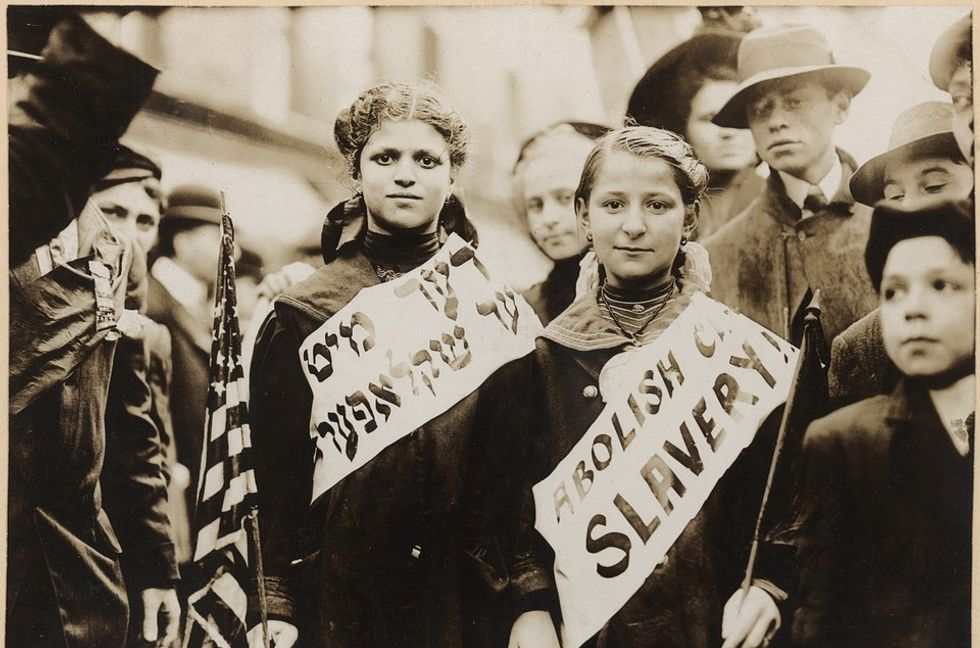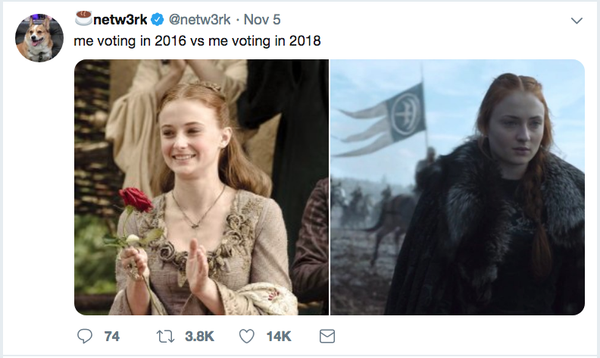I am currently taking a class in Early American History, covering the history of the U.S. from 1492 up to the Civil War. Last week, we began our discussion on slavery, and my TA posed the question: "Does it make you uncomfortable to discuss slavery?" I found myself thinking more on the question as the section progressed, and decided to poll a wider audience to determine whether people of different races found it uncomfortable to discuss slavery.
I created a poll and invited students via Instagram and Groupme to respond. (A few days later, per my request, my History professor emailed the link to the poll out to my section of the class.) The poll consisted of four simple questions; (1) the student's first name, (2) the student's age, (3), the student's race, and (4) the question: "Does it make you uncomfortable to discuss slavery? Why or why not?" Within a few days, I had gathered 49 responses varying in gender, race, and age to answer my question.
Over all races, ages, and genders, 7 students responded that discussing slavery made them uncomfortable, 37 responded that it did not make them uncomfortable, and 5 responded otherwise (e.g., saying it depends, both yes and no, etc.). This surprised me a bit, as in my History discussion, less people than usual seemed to contribute voluntarily to the discussion, and many seemed to be uncomfortable from my perspective. However, most people who answered "no" explained why in a similar regard: "it's history." For example, Jacqueline (18, white), said, "No. It's not a good part of history, but it is a part of it and I think talking and learning about slavery helps to understand how it contributed a lot to society and the economy over the years, both good and bad." Janine (19, Indian American), had a similar view: "[I]t doesn't make me uncomfortable to discuss slavery because it's something that was a part of our history and still happens today. We can't pretend that slavery never happened or doesn't exist, and we need to face the issue head on."
Those who responded "yes" elaborated similarly as well. Alexandra (19, white), said, "Yes, but it is something that needs to be talked about. It is saddening to hear of the suffering, pain, and tragedy that these people had no choice but to go through." Something I found interesting was that, of all ethnic groups that responded, only those who indicated they were white said responded that discussing slavery made them uncomfortable. A few of these responders indicated that this was because they felt a sense of guilt at the actions of their ancestors not long ago. Ashley (19, white), responded that she did "not want to be associated as the same group (ethnicity) as slaveholders." As a white person, I can understand this, and thought it would have been a more prevalent response in the poll.
Kendall (18, white) had an interesting take on the topic. She responded that discussing slavery made her uncomfortable, "but in a good way. I think that, by construct, white individuals feel uncomfortable when discussing slavery because we feel so far removed from the subject. We don't enjoy associating ourselves with the atrocities committed by our ancestors, but the fact is that we ARE associated to it, and still benifit [sic] from it today. Personally, I actively seek out that "uncomfortable" feeling because it means that I am learning and changing. I am beginning to better understand my own privilege, and am therefore able to adjust my mindset and actions to understand things from the perspective of a different person with a different background. The discomfort is positive. It's growth."
Among the 3 students who identified as black, each responded saying that slavery was not an uncomfortable subject to discuss. Jordyn, 21, said "No. It's a part of my history and at some point, this was a reality for some of my ancestors. I enjoy learning that history, however it is sometimes difficult to talk about it, and to know that people who look like me were treated like that just because of the color of their skin. It can feel isolating discussing slavery in a room full of [w]hite people." Ugonna, 18, responded, 'No It doesn't make me uncomfortable because the consequences of slavery are still prevalent in society today. You can't fix a problem without addressing the cause. I am affected by the results of slavery everyday so whether or not I want to I have to discuss about slavery." When discussing the subject with a couple other students in my History class who were black, they responded similarly.
Only three respondents of 49 were not between the ages of 17 and 22, so the data I gathered is certainly too minimal to extrapolate to a larger group. However, discounting those outside the previously mentioned age group, 34 out of 46 or 73.9% of respondents indicated that they were not uncomfortable discussing slavery. This seems to be one part of a larger theme among this generation: we are more comfortable discussing the uncomfortable world of politics. A survey published in February 2017 found that millennials (ages 18 to 34) are the most comfortable discussing politics, with 68 percent indicating that they are comfortable discussing politics at work.
Though, as Jordyn said, it can be uncomfortable as a black person to discuss slavery in a room full of nonblack people, it is an important topic to discuss for both black and nonblack Americans. As Caleigh (18, white) said, "[slavery] is part of America's history and [is] something that must be talked about in order to fix its consequences and prevent future events like it." Among all respondents of the poll, most seem to agree on this. Slavery is not an issue that can be swept under the rug and ignored -- especially since the consequences of slavery still leach into society today. Black people still face violence at much higher rates than white people; for example, 31 percent of victims killed by police in 2012 were black, despite the fact that only 13 percent of the U.S. population is African American. Additionally, in the recent 2018 midterm election, over 51,000 Georgia residents were suspended from voting due to an "exact match" system, with 80 percent of those being nonwhite (and most of those being African American).
Slavery was officially declared illegal in the United States over 150 years ago, but it is still a prevalent part of American history, and should be discussed not only in the classroom, but outside it as well. As George Santayana once famously said, "Those who cannot remember the past are condemned to repeat it." In order to prevent a such an atrocity as slavery occurring again, we must discuss its past and how it has seeped into our present. Luckily, according to this poll, many college age students are willing to do so.



















